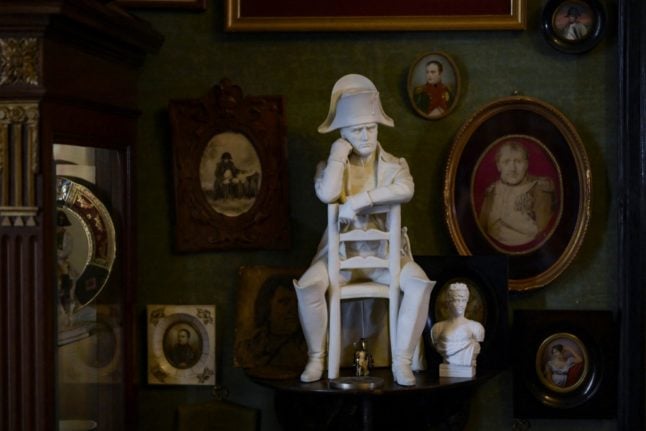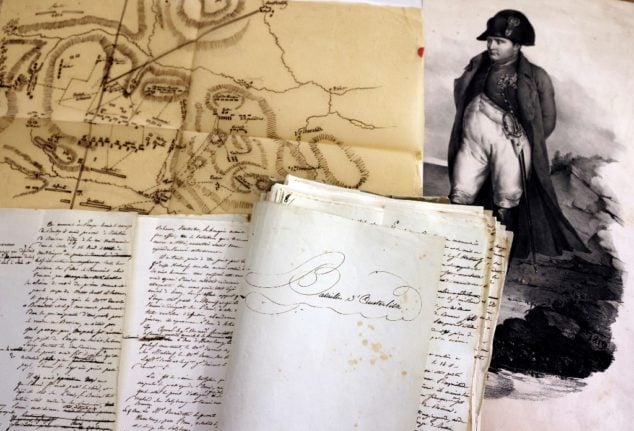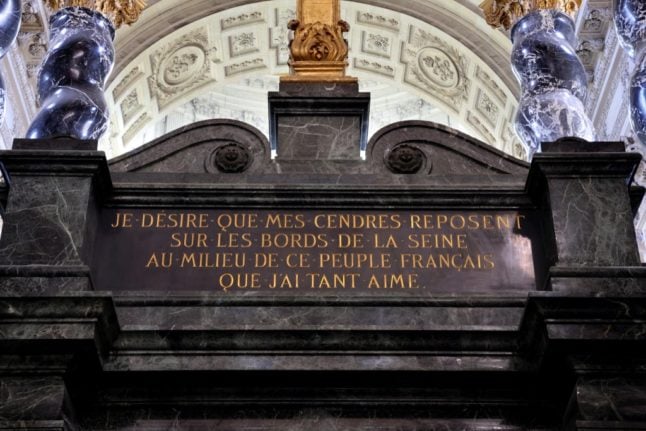One letter written in code by Napoleon to one of his ministers 200 years ago, in which he threatens to blow up the Kremlin, fell under the hammer at the Osenat auction house for 150,000 euros, more than 10 times its estimate.
The manuscript, dating from the time of the disastrous French invasion of Russia after a decision had been made to turn back, was acquired by the Museum of Letters and Manuscripts.
The total cost for the museum including fees was 187,500 euros.
The letter, essentially a series of numbers encoding the message, was addressed to Foreign Minister Hugues Bernard Maret and written on October 20, 1812, a day after Napoleon ordered his troops out of the Russian capital.
"I am going to bring down the Kremlin on the 22nd at three o'clock in the morning," the emperor writes, although he had already left Moscow.
The Paris museum also succeeded in obtaining a manuscript written by Napoleon during his exile on Saint Helena about his past military campaigns for 300,000 euros.
Osenat estimated its value at between 60,000 and 80,000 euros.
This was a record payment for the museum for any historical document, mounting to 375,000 euros when fees are included.
The “Essay on Campaign Fortification” is a 310-page document dictated by Napoleon, with his corrections, annotations and drawings, while in exile on the island of Saint Helena.
The book is described by the Osenat auction house as the most important item in private hands of the writings dictated by Napoleon on the island.





 Please whitelist us to continue reading.
Please whitelist us to continue reading.
Member comments